Canberra parents are being asked to keep their young children at home from daycare because of a struggling early childhood education sector, industry insiders say.
And while the federal Labor government has promised changes to the industry, the sector warns new policies may make matters worse.
From July 2023, Labor has promised to introduce further childcare subsidies for households earning up to $530,000 a year.
They said it would benefit 97 per cent of families with young children.
The government said they would ask the ACCC to develop a price regulation mechanism to stop subsidies translating to higher fees and tell the Productivity Commission to review the sector.
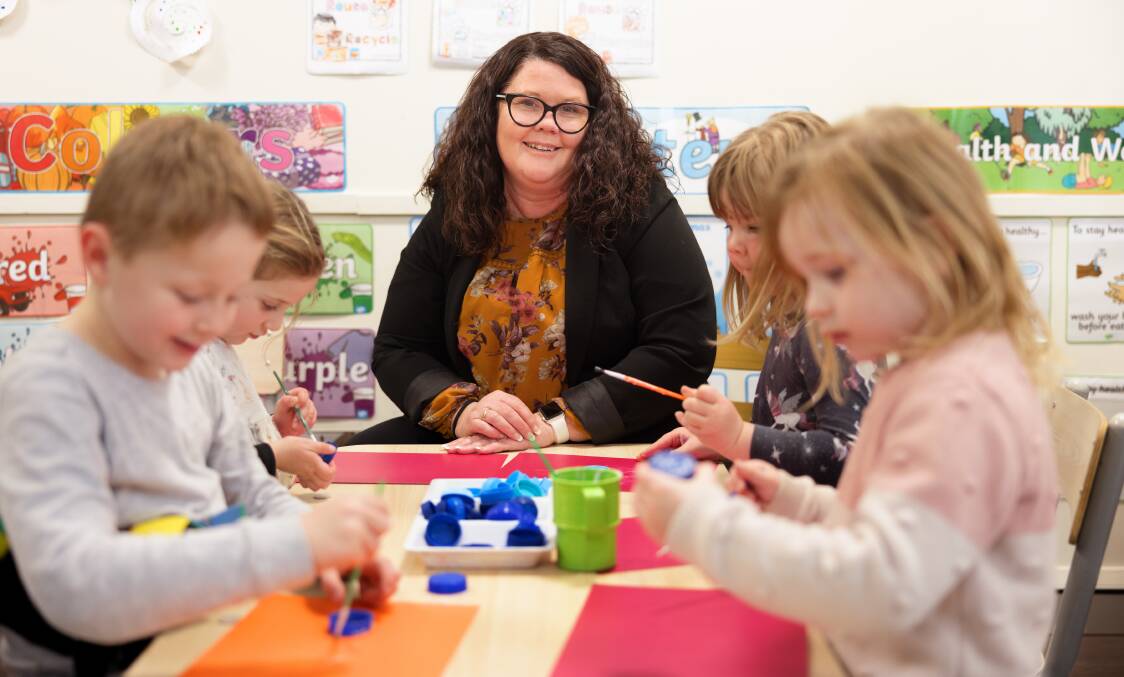
Choosing Bunnings over education
But qualified early childhood educations are already so underpaid, they would rather work at Bunnings or not at all, United Workers Union early education director Helen Gibbons said.
"We're hearing reports of [staff] going into retail, Aldi or Bunnings, because the casual weekend rates are significantly higher than early educators' hourly rate," she said.
The director of a Canberra centre, Cassandra Duff, said the city has always struggled with childcare staff shortages; but it is now much worse because of inflation.
"It's gotten so bad that children are being turned away, and parents are getting phone calls in the morning saying, please don't bring your child in today because we don't have enough staff to look after them," she said.
Ms Duff said while subsidising early education was "a great thing", the sector would need thousands more workers to support increased demand.
Minister for Early Childhood Education and Care Dr Anne Aly said she hoped the Fairwork Commission would look into early education wages.
She said the government would help address the shortage by providing more free TAFE courses.
She said free places would help address the low finishing rates for people studying early education.
Kellie Stewart, Director of Communities@Work Children's Services, agreed there were barriers to accessing qualifications.
She said there was a time limit to finish degrees, but educators were already burnt out from the pandemic.
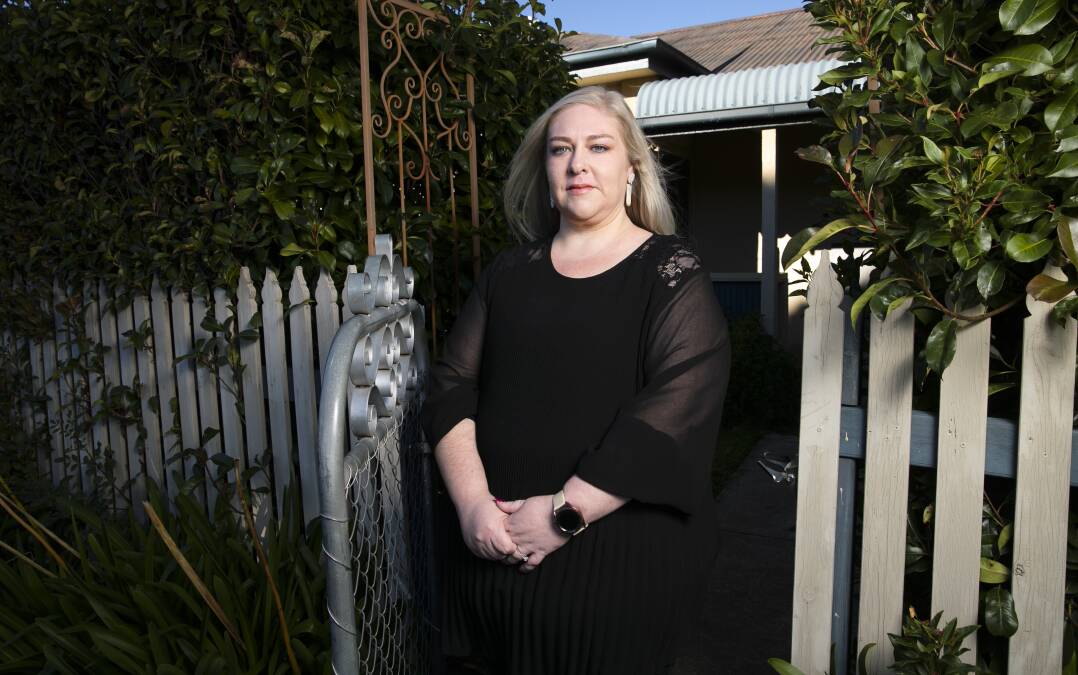
There are enough staff: union
However, Ms Gibbons said there were enough qualified educators in Australia.
"We don't have a shortage of early educators, we have a shortage of early educators who wants to work in early education," she said.
"Early educators can be paid as little as $24 an hour for qualified, responsible, committed jobs. But it's not just paying conditions, it's also about being overlooked and undervalued by the community and by government," she said.
Canberra mother-of-five and former educator Katie Anderson left the industry because she earned $22 an hour and found the job demanding and underpaid.
Now working as a truck driver, she is also a full-time carer for her additional needs child.
Ms Anderson said having to take her baby out of care and be a full-time mum would be a financial and mental health struggle.
"We're [already] in the red where we don't have any money to pay some bills," she said.
"It's becoming to the point now where it's not worth me going to work because everything I earn is literally going to daycare."
Children from lower socioeconomic groups are missing out on vital early education, The Smith Family's Karen Russell said.
"Now those families are being turned away, just because centres don't have the position or the spots available because they don't have enough staff," she said.
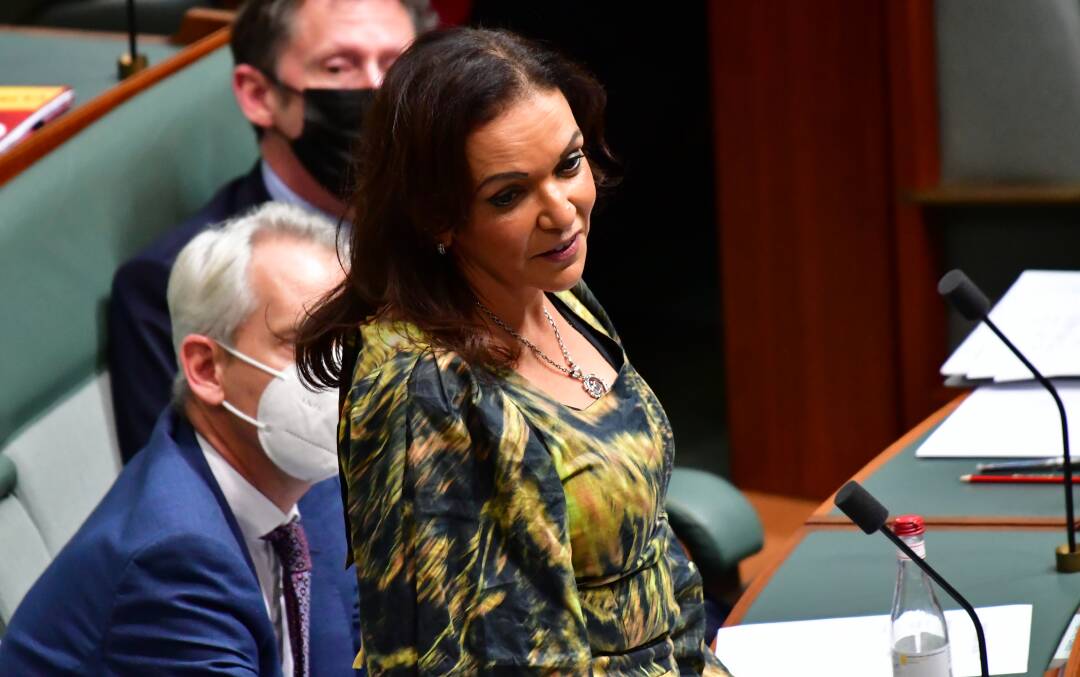
'Early childhood education is education, not welfare': Minister
Ms Anderson welcomes the higher subsidy (from 83 to 90 per cent for her household) but said it would probably just cover her centre's increased fees.
"I think it will help, at the end of the day, bring the cost down just that little bit more," she said.
"But [for] other families out there, it may not even touch the spot."
Households on $75,000 a year will pay ten per cent out of pocket; those on $250,000 50 per cent, and families making $500,000 a year will get seven per cent subsidised.
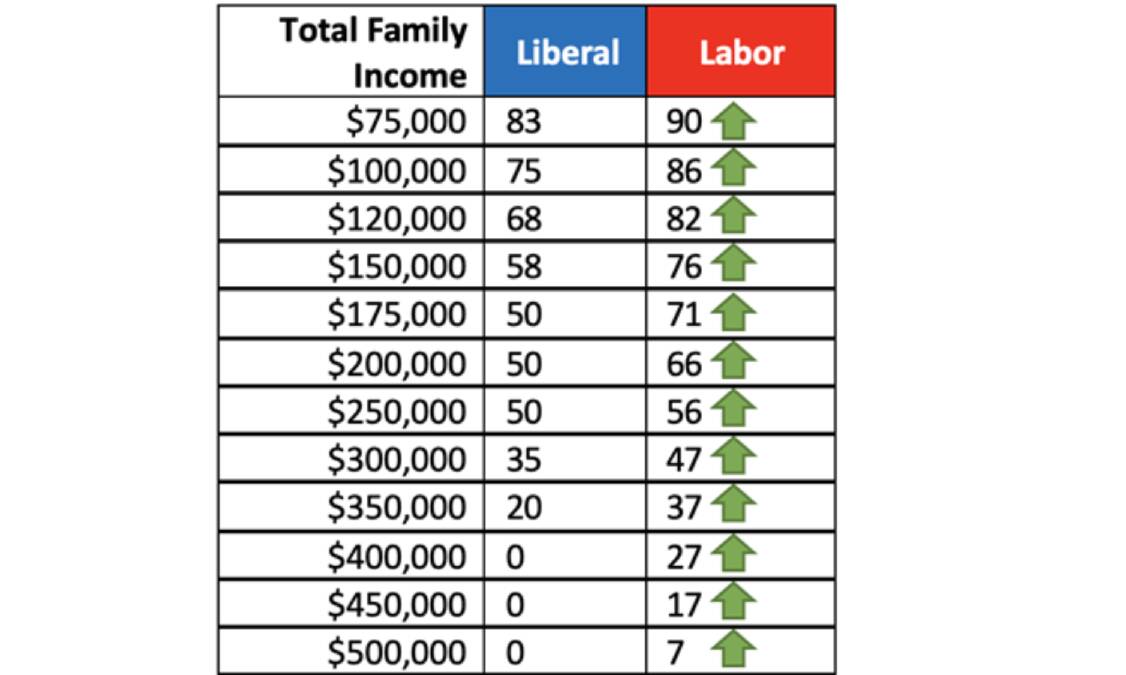
Earlier this week, the federal Greens said they wanted universal free childcare.
While Dr Aly said she hasn't spoken to the Greens on their request, she said they were aware Labor had taken a goal of 90 per cent child care subsidy for all families to the election.
Ms Anderson said she would rather lower-income families receive free care than those at the top end of town receive kickbacks.
"I don't think if someone's on $500,000 a year that they should be complaining about $200 a week in childcare," she said.
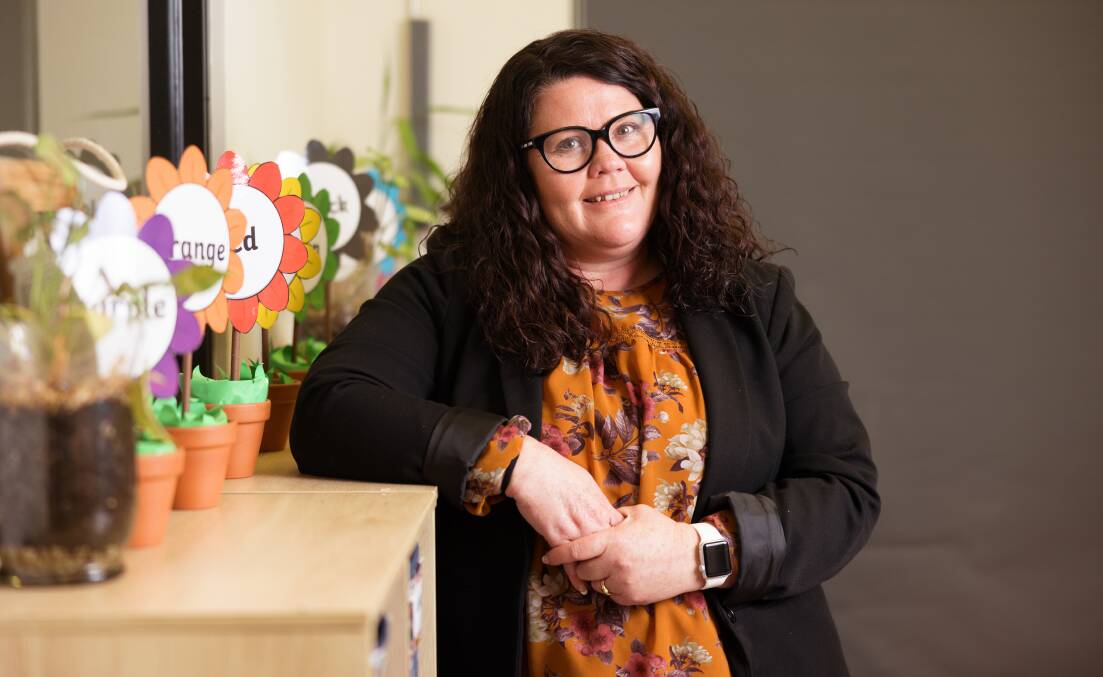
However, Dr Aly defended subsidies for higher-income families.
"Early childhood education is education, not welfare," she said.
"We don't means test families in public schools."
Australians need to look at childcare as vital early education for children, The Smith Family's Karen Russell said.
"We don't say send your children to primary school so that more people can participate in the workforce. It's just expected because it's part of education," she said.
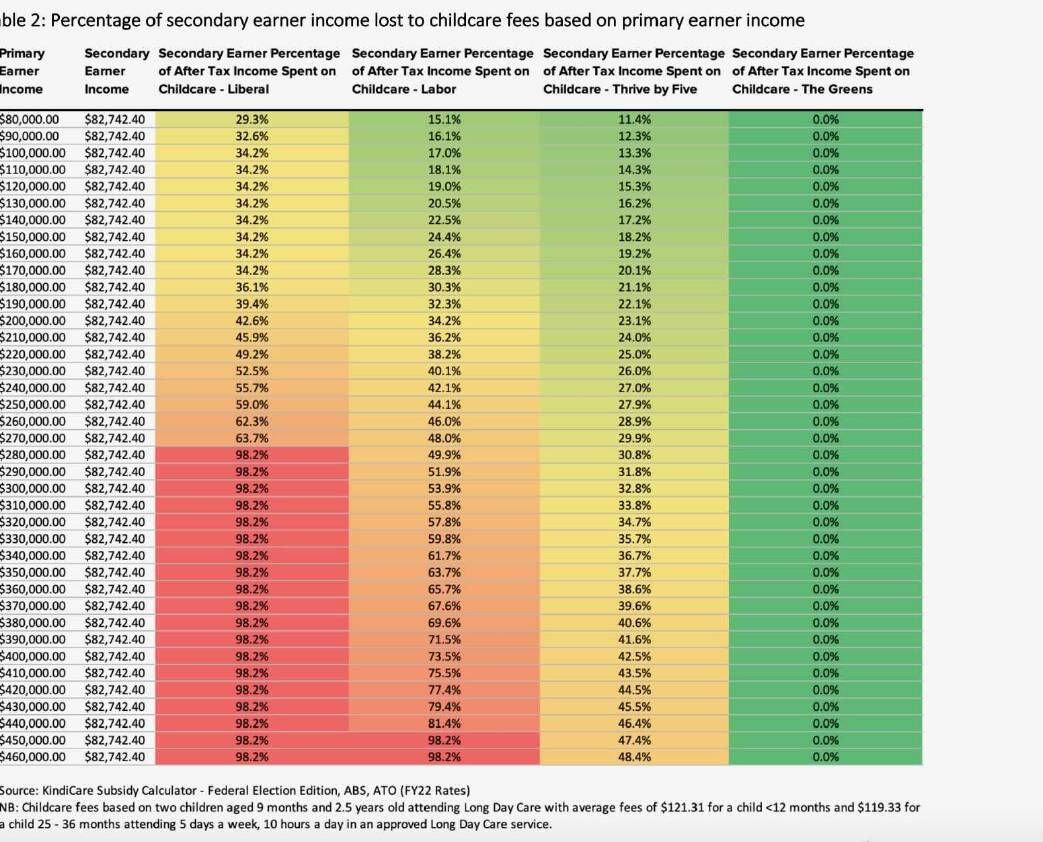
Ms Dent said the subsidies would encourage workforce participation for women.
She said many highly educated Australian women did not work because of childcare costs and a taxation system that "punished" second-income earners.
"The subsidy that is paid is dependent upon household income, it's not dependent on individual income, and so women tend to get punished if they have got a high income earning partner," she said.
"[The proposed changes] could potentially result in an eight per cent increase in hours worked by second income earners with young children."
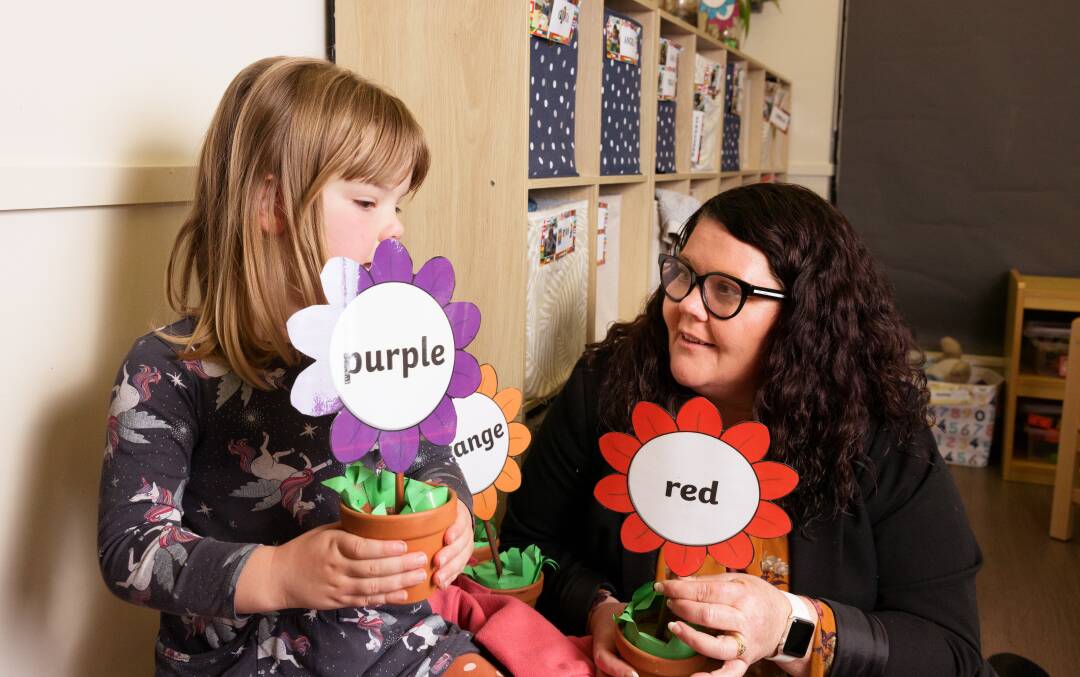
Women who pay to work
Canberra mother-of-three including twins, Heidi Varis, had all her children in care at the same time.
"I was actually paying more in childcare than what I was earning," she said.
"I only worked three days a week because at that stage when you reached your thresholds ... you had to pay the full childcare fees.
"We would have been better off financially [when it came to childcare] if I had stayed at home with the kids."
Families earning less than $356,756 with more than one child under five can now access a higher childcare subsidy for their younger children.
Ms Varis said early education was an example of "the missing middle" and welcomed higher subsidies for medium-income households.
"[Not having support for childcare fees means] facing all that social isolation from staying at home, and just kind of counting the days until your kids are old enough to go to school," she said.
We've made it a whole lot easier for you to have your say. Our new comment platform requires only one log-in to access articles and to join the discussion on The Canberra Times website. Find out how to register so you can enjoy civil, friendly and engaging discussions. See our moderation policy here.







